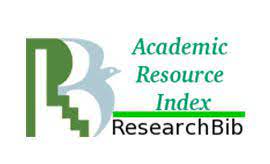Digital technologies in the ESP course for developing terminological competence
DOI:
https://doi.org/10.51707/2618-0529-2024-31-05Keywords:
digital technologies, English for Specific Purposes (ESP), professional competence, specialized language, terminological competence.Abstract
The article aims at studying the effectiveness of using digital technologies in developing students’ terminological competence in the English for Specific Purposes (ESP) course. The topicality of this study is determined by the appeal to the principles of the implementation of the competency-based approach in teaching terminological vocabulary in ESP. The proficiency in a specialized language is considered one of the main indicators of the quality of professional education of specialists. The terminological competence is viewed as an essential component of professional competence, which contributes to successful specialized intercultural communication through mastering termsin English. According to this view, terminological competence is understood as the ability and readiness of a specialist to competently apply terminology in solving professional problems, while using the minimum number of personal resources. The specifics of terminological competence are reflected by three components: subject cognitive, intellectual-reflexive and communicative-linguistic. It is outlined that modern scholars have recognized that the development of terminological competence turns out to be more successful in the digital learning environment. It is stated that the use of modern digital technologies in teaching ESP allows not only increasing students’ language proficiency, but also improving their communication abilities, making learning ESP more accessible and exciting, and creating a sustainable interest in the English language. The theoretical significance of the study is determined by the identification of additional opportunities for the use of digital technologies at the university in the ESP course, which allows a more flexible response to changes in all aspects of human life. The practical significance lies in listing the main digital tools, as well as providing recommendations for their use. During technological breakthroughs and globalization, knowledge of ESP becomes critically important, which opens the door to global communication, career growth, and allows youth to see the world from a new perspective.
References
Fedorenko, S., Antonenko, I., Kolomiiets, S., Hurieieva, L., & Tsepkalo, O. (2021). COVID-19 Impact on Media Education in Technical University. Amazonia Investiga, 10 (47), 152‒160. DOI: https://doi.org/10.34069/AI/2021.47.11.15.
Sikora, I. (2014). Contemporary approach to terminological competence, management and terminology teaching on the basis of courses for translators offered by Polish higher education institutions. In G. Budin, V. Lušicky (Eds.), Languages for Special Purposes in a Multilingual, Transcultural World — Proceedings of the 19th European Symposium on Languages for Special Purposes (pp. 500‒508). Vienna, Austria : University of Vienna.
Faber, P. (2004). Translation competence and enhanced knowledge acquisition. In E. Fleischmann, P. Schmitt, G. Wotjak (Eds.). Translationskompetenz (pp. 479‒499). Tübingen : Stauffenberg.
Montero Martínez, S., & Faber, P. (2009). Terminological Competence in Translation. Terminology, 15 (1), 88‒104. DOI: https://doi.org/10.1075/term.15.1.05mon.
Dziuba, M., & Malevych, L. (2020). Vykorystannіа merezhnykh resursiv dlіa formuvannіa terminolohichnoi kompetentnosti studentiv nefilolohichnykh spetsialnostei [The use of network resources for the formation of terminological competence of students of non-philology majors]. Information Technologies and Learning Tools, 76, 137‒151. DOI: https://dx.doi.org/10.33407/itlt.v76i2.2603 [in Ukrainian].
Akramovna, H. M. (2022). Terminological Competence as a Basis of Training Philological Specialists. Miasto Przyszłości, 218‒219. Retrieved from https://miastoprzyszlosci.com.pl/index.php/mp/article/view/226.
Bakirova, H. B. (2021). Formation of terminological competence in ESP education. JournalNX. A ultidisciplinary Peer Reviewed Journal, 6 (11), 63‒68. Retrieved from https://repo.journalnx.com/index.php/nx/article/view/114.
Kalay, D., Fedorenko, S., Hurieieva, L., & Kolomiiets, S. (2020). Forming Students’ Terminological Competence in the Moodle-based E-learning Course. Advanced Education, 7 (16), 104‒111. DOI: https://doi.org/10.20535/2410-8286.216980.
Polcz, K. (2015). Terminological Competence in ESP: A course design for English for marketing and promotion management. In G. Juhász, K. Horváth, Z. Árki, J. Keserű, A. Lévai and Š. Zoltán (Eds.), Innovációés kreativitás az oktatásban és a tudományban (Innovation and creativity in education and science) (pp. 350‒362). Komárno : Selye János Egyetem.
Fedorenko, S., & Kravchenko, T. (2023). Multimodal Resources and Students’ Motivation in English for Specific Purposes. Arab World English Journal,14 (1), 59‒70. DOI: https://dx.doi.org/10.24093/awej/vol14no1.4.
Jacobson, M., & Archodidou, A. (2000). The design of hypermedia tools for learning: Fostering conceptual change and transfer of complex scientific knowledge. Journal of the Learning Sciences, 9 (2), 145‒199.
Alcina, A. (2011). Teaching and Learning Terminology: New Strategies and Methods. Amsterdam; hiladelphia : John Benjamins Publishing.
Council of Europe. (2020). Common European Framework of Reference for Languages: Learning, Teaching, Assessment. Companion Volume. Council of Europe Publishing. Retrieved from https://www.coe.int/en/web/common-european-frameworkreference-languages.
Prensky, M. (2001). Digital Natives, Digital Immigrants. Part 1. On the Horizon, 9 (5), 1‒6. DOI: https://doi.org/10.1108/1074812011042481.
Downloads
Published
How to Cite
Issue
Section
License
Copyright (c) 2024 Scientific notes of Junior Academy of Sciences of Ukraine

This work is licensed under a Creative Commons Attribution 4.0 International License.













